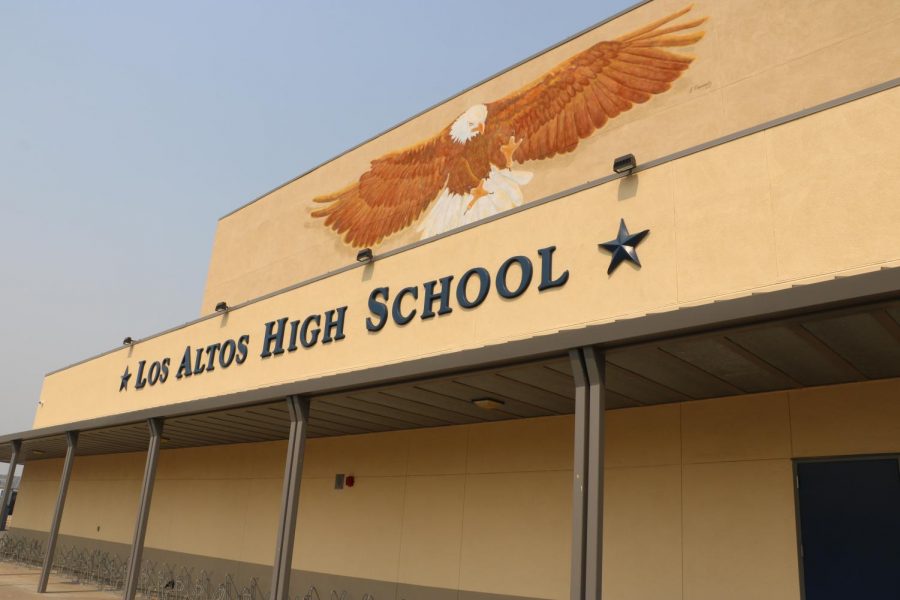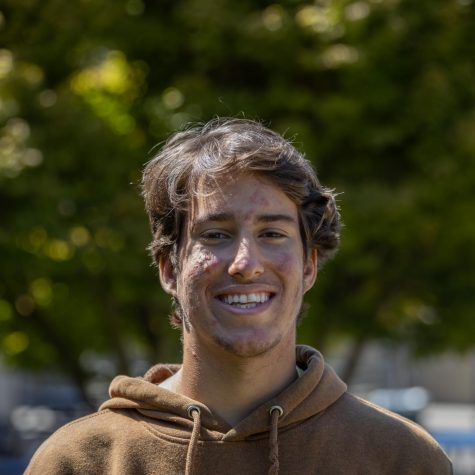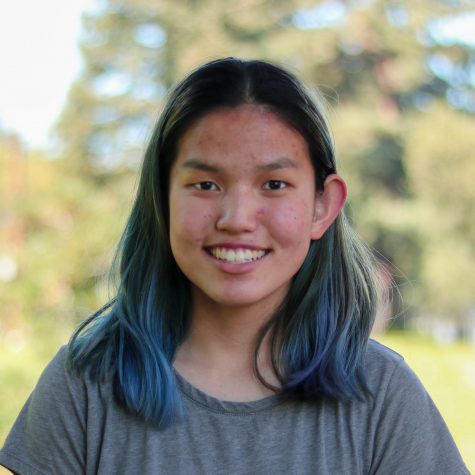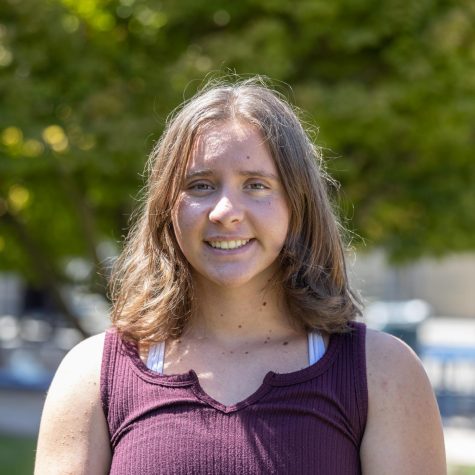Yesterday, the United States Department of Education named Los Altos High School one of 27 nationwide Green Ribbon Schools for its “promising practices to improve achievement and equity.” The Green Team, a club dedicated to promoting healthy environmental practices, works to implement sustainable practices in LAHS and played a major role in Los Altos’ Green Ribbon School selection.
LAHS introduces new classes for 2021-22 school year
February 17, 2021
Agroecology
Los Altos High School will implement a new science course called Agroecology, where students will learn about environment-related topics including sustainable agriculture and botany through hands-on learning in the campus garden and classroom lab.
The course will be taught by science teacher Jacob Russo and offered as a year-long elective with minimal homework for the 2021-22 school year. Students do not need any past experience in gardening, and priority will be given to juniors and seniors, as well as students who have struggled academically in past years.
“If you enjoy gardening, want to learn more about it or want a unique experience to break up a rigorous daily schedule, Agroecology will fit the bill,” Russo said.
Each student in the course will be responsible for tending their own raised bed in a fenced off LAHS garden area and will learn how to bring a seed to harvest. Students will also conduct lab work in the classroom — typically running experiments related to plants and soil — to gain a deeper understanding of the science behind their garden work.
“The goal is to help students figure out how to create a garden that operates as a healthy ecosystem in miniature,” Russo said. “It’s very much about what can be done with yards, unused areas along sidewalks, rooftops, empty warehouses, office buildings or vacant lots in the surrounding community to help feed it.”
Beyond gardening and lab work, the class will emphasize peer bonding. As opposed to a formal classroom environment, Russo is optimistic that being in the campus garden will offer an excellent classroom community, where those who develop skills faster can assist those needing more time and students will be more likely to ask peers for help. Ultimately, students will leave the class with the necessary skills to develop a healthy garden and positively impact their local communities.
For sophomore Hazel Oxford, a passionate environmentalist, Agroecology serves as an exciting opportunity for a junior-year elective. Hazel already has experience with gardening in her own backyard, so she hopes she’ll be able to explore growing different foods that she hasn’t experimented with inside the class.
“I think I would want to grow watermelon; I don’t even know if that’s possible with the plot of land,” Hazel said. “But I think it’s just really cool that they’re giving students this kind of freedom and saying ‘Hey, you can grow this and we’re going to help you through it.’”
To learn more about the course, you can watch the course selection video here.
Exploring Music
A new performing arts class called Exploring Music will be taught at Los Altos High School to make music classes more accessible to students, with an emphasis on a wide range of music genres. Music teacher Elizabeth Boyd will teach Exploring Music, which was introduced during course selections earlier this month. In the class, students will gain experience playing the keyboard in addition to learning the basics of writing, recording and editing music.
The class is slated to meet the fine arts (F) requirement for the University of California A-G subject requirement and will be open to all grade levels. All interested students, regardless of musical experience, are encouraged to sign up for the course.
“As a new teacher, I felt like there was room for more instrumental music courses at the school, so I proposed one,” Boyd said. “I think that music is for everyone, and I would like LAHS to reflect that more.”
Students will be expected to complete multiple projects each semester in addition to weekly instrument practice; possible projects include a social justice presentation, instrument composition and creating an original melody. Although most work will be finished at school, students are encouraged to spend more time outside of class to further develop their projects. Boyd anticipates the primary focus will be on music creation and discussion, with a small amount of writing assignments.
During the first semester, students will develop keyboard skills while getting feedback from classmates, creating the foundations for original work. Since the curriculum is still in the works, the goals for second semester are still being developed. Factors such as interest, class sizes and possible facilities must be taken into consideration before it can be finalized.
Given an in-person return in the fall, she hopes to incorporate more digital resources, as well as tools in the new music building. Specifically, she hopes to utilize the piano lab that is set to finish construction by the summer.
However, if distance learning is to continue into the fall, Boyd said that the class would be doable online since the first semester is focused on individual piano practice and assignments. Students would also still be able to collaborate through digital music, recordings and composition without needing to meet in person.
Through Exploring Music, Boyd hopes students will learn not only skills like marketing, digital music production and sound engineering, but also vital lessons applicable to all fields.
“I’ve seen a lot of students in the past grow in confidence, creativity, problem solving and thinking about things from different perspectives,” Boyd said. “I think communication is big in whatever field you go into, within your class or outside with professionals in your fields.”




